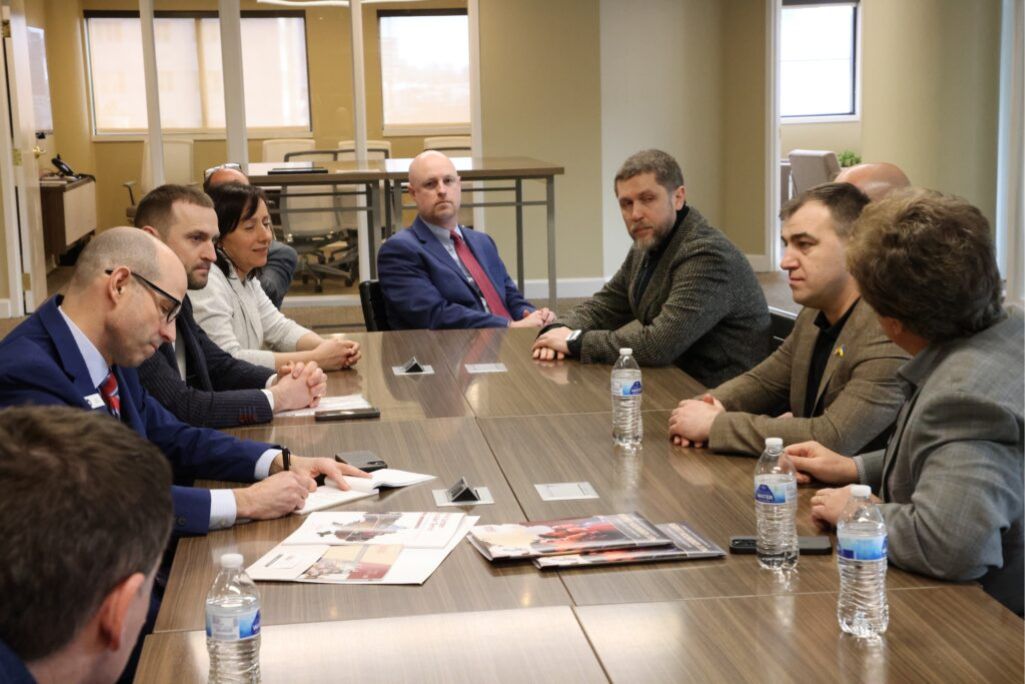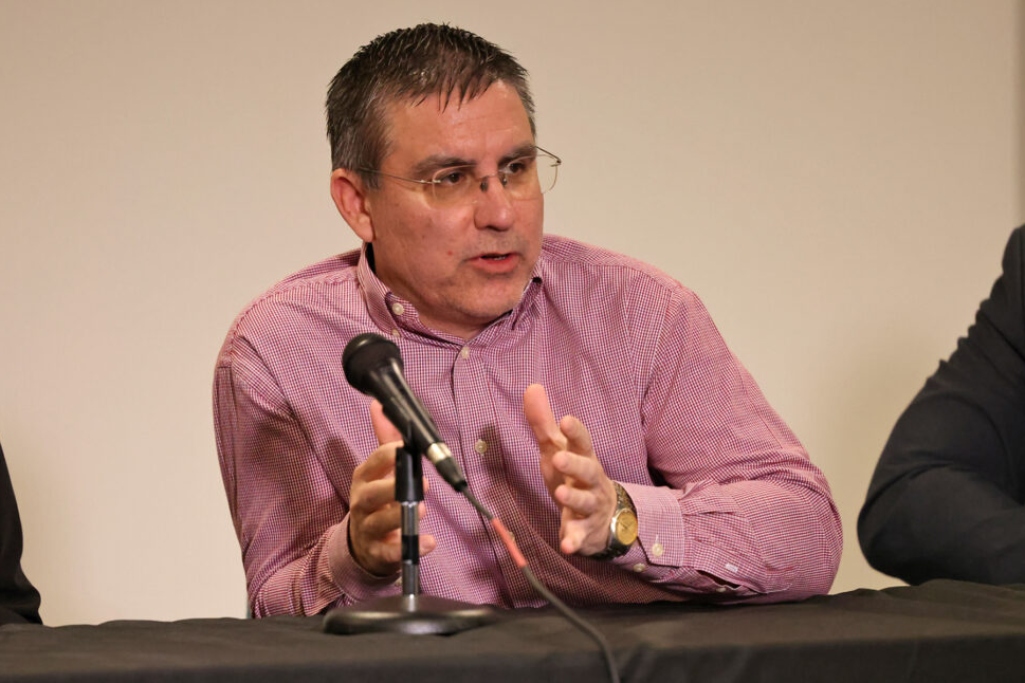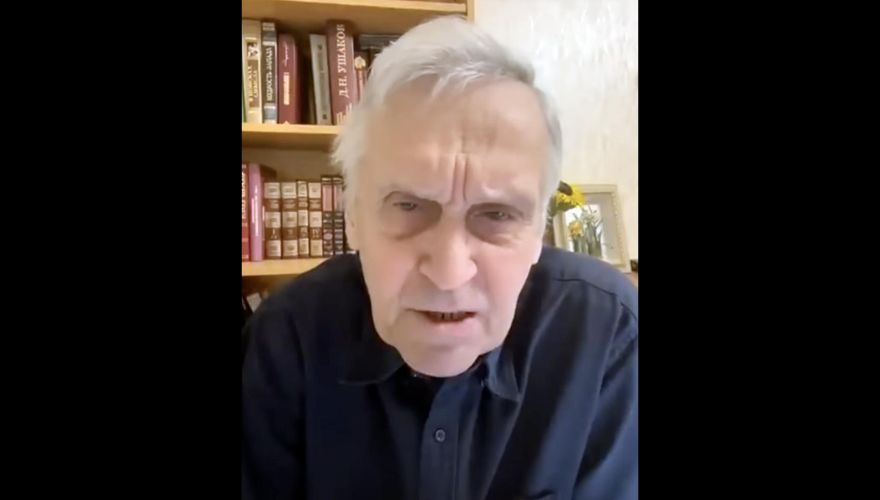
NASHVILLE (BP) — The Protestant church, seen as “a fringe” denomination in mostly Orthodox Ukraine, has gained traction and respect for its humanitarian aid during Russia’s war on Ukraine, a delegation of governmental and religious leaders said during a visit here.
“The general public has always viewed the Protestant church as fringe or unimportant. But things have changed a lot in the past three years because I have seen a real openness,” Ukrainian Congressman Oleksandr Shkuridin said in a meeting hosted by the Southern Baptist Ethics & Religious Liberty Commission (ERLC) and Southern Baptist Convention (SBC) Executive Committee (EC) in Nashville.
“I’m not grateful to God for the war, but I’m grateful to God to have used the situation to reveal the strength of the Protestant churches,” said Shkuridin, head of the Interfactional Fraction in the Chernivtsi Province Congress, citing the church’s large scale humanitarian and gospel outreach to Ukraine.
Since the beginning of the war, Protestant-sponsored organizations both locally and internationally have been main drivers of humanitarian relief, Shkuridin said.
But the leaders from Chernivtsi, a southwestern Ukrainian city bordering Moldova and Romania, expressed confusion after meeting with congressional leaders in Washington to discuss U.S. support for Ukraine during a suspension in U.S. Agency for International Development (USAID) spending.
“Alarmed,” Vyacheslav Nahirniak, pastor of First Baptist Church in Chernivtsi, said of the delegation’s reaction. “We don’t understand what stage we’re at.
“People were eagerly anticipating the American presidential elections. President Trump promised to end the war in the first 24 hours. Then we had been waiting for the inauguration. And we don’t really know what to wait for now.”
Miles Mullin, ERLC vice president and chief of staff, received the three-person Chernivtsi delegation.
“The Russian invasion of Ukraine has resulted in suffering and religious persecution for so many of our fellow Baptists,” Mullin told Baptist Press. “Ukraine has the largest Baptist population in Eastern Europe, and we lament the cruelty and evil that has been displayed by invading Russian forces towards them and other Ukrainians.”
Mission Eurasia, a Tennessee-based Christian educational and charitable organization operating in Ukraine and 14 other countries, arranged the delegation’s visit to the U.S. on Feb. 8-11 just as USAID was suspended, Mission Eurasia said. Delegation members attended the International Religious Freedom Summit, where they heard an address by U.S. Vice President J.D. Vance; met with various officials including Ambassador Kurt Volker, former U.S. special representative for Ukraine negotiations; met with U.S. Congressman Joe Wilson, R-N.C., chair of the U.S. Helsinki Commission and a member of the House Committee on Foreign Relations; and other leaders.
USAID had designated $130.1 billion in humanitarian aid to Ukraine since February 2022, according to ukraineoversight.gov, and had disbursed $86.7 billion before Trump halted spending in one of a spree of executive orders issued in his first days in office.
Ukraine is hurting, Mission Eurasia President Sergey Rakhuba said, introducing the delegation to offer firsthand accounts of the atrocities suffered during the war and to counteract Russian propaganda.
The delegation described a Ukraine resolute in continuing its fight, despite an interruption in U.S. humanitarian aid and an uncertainty in the continuation of U.S. weapons assistance seen in the Biden administration.
“We will continue to do what we’ve been doing for the past three years,” said Oleksii Boiko, head of the Chernivtsi Supreme Regional Council and speaker of the Congress of the Chernivtsi Province. “People may be tired of war in Ukraine. People may be tired of war overseas, but this doesn’t stop the war.
“When we talk about the neighboring country trying to seize more and more of our land,” Boiko said, “it’s not just some made up things. This is a real thing. ‘Ukraine will just give up and put its hands down,’ it’s a mistake to think that way.”
“We’ll continue to defend,” added Shkuridin. “Without this help it will be extremely difficult. We will not be as successful as we have been, but we’ll continue to do it.”
But the U.S. should find a way to continue to support Ukraine’s war effort, the delegation said, because Ukraine’s victory would be a victory for religious liberty.
“America is an example of democracy and freedom,” Shkuridin said. “We have always looked up to America as such. We would like to receive support so that the Ukrainian people could just have the same freedom of self-expression and freedom of faith.”
Mullin and Jonathan Howe of the SBC Executive Committee presented the delegation with a framed copy of the resolution, “On the War in Ukraine,” which messengers to the 2022 Southern Baptist Convention annual meeting adopted.
“Our convention of churches has spoken clearly in the 2022 SBC resolution, ‘On the War in Ukraine,’” he said, “condemning Russian aggression and standing in solidarity with ‘our Ukrainian brothers and sisters in Christ as well as the people of Ukraine.’
“As we did then, we continue to call for a cessation of hostilities, the withdrawal of the Russian military and the end of the war. And we commit to redouble our prayers for those, like the leaders of the Ukrainian Baptist Theological Seminary (UBTS), who continue to minister and share the gospel in the midst of the death and destruction it has caused.”
UBTS President Yaroslav “Slavik” Pyzh also attended the meeting, hailing the work of ERLC that brings a gospel witness to the marketplace and recommending such an organization for Ukraine.
“There is a big gap between church and church life and political life (and) public life,” Pyzh said. “And I think it would be great to come up with a platform where we can combine politicians with churches, pastors with politicians, where they would be held accountable to each other.
“Preaching the gospel is one thing when you’re preaching it in the church building,” Pyzh said. “But when you step outside the church building into the marketplace, it starts being a little bit different. And so I think we have to keep these two elements together — marketplace and the church.”
(EDITOR’S NOTE — Diana Chandler is Baptist Press’ senior writer.)


